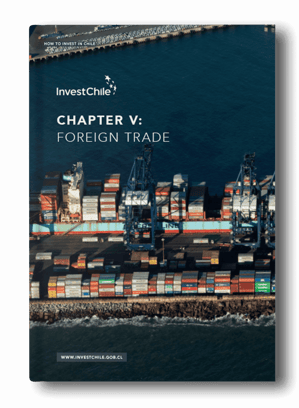In recent decades, Chile’s trade policy has focused on creating favorable conditions for free trade as a means of fostering the country’s economic and social development.
Legal Framework
Chile’s most important legislation as regards customs matters are: Decree with Force of Law 30/2004, updated in March 2017; Organic Law of the National Customs Service; Decree 514 issued by the Finance Ministry in 2016. The authority responsible for customs matters is the National Customs Service.
Tariff Code Classification
The Tariff Code Classification is an international system that allows users and the
corresponding authorities to calculate duties and other taxes on the import and export
of different goods. A tariff code has between six and ten digits and the more digits it contains the more specific is the product it identifies.
Customs Agent
For the import or export of goods with a value of more than US$1,000, the services of a customs agent are necessary.
Certification of Origin
In international trade agreements, states establish the so-called “rules of origin” which serve to determine whether a product qualifies for preferential tariff treatment when it is traded between the agreement’s partners.
Certificates of origin are issued by a government authority or a business organization with
legal status. Some trade agreements (such as those with Canada, Mexico, and the United States) regulate the use of self-certification under which it is the exporter who issues the certificate of origin.
Imports
As a general rule, any goods can be imported into Chile except those that are specifically prohibited by law such as second-hand vehicles and motorbikes, asbestos in any of its forms, pornography, and toxic industrial waste.
At present, the general tariff for the import of goods into Chile is an ad valorem duty
of 6% calculated over their CIF (Cost, Insurance, Freight) value. VAT (19%), calculated
over the CIF value plus the ad valorem duty, is then also charged.
Exports
Exporting consists in the legal shipment of national or nationalized goods for their use or consumption in other countries. In general, all goods can be exported from Chile. There are, however, some prohibitions (for example, the export of narcotics and explosives) or special rules such as the need to obtain prior approval (for example, in the case of copper and certain agricultural products). In general, goods exported from Chile are not liable to Chilean duties or VAT, except when expressly indicated by law.
Interested in learning more about Chile's Foreign Trade Policy?
Learn about Chile’s policies on foreign trade and the related regulation:


